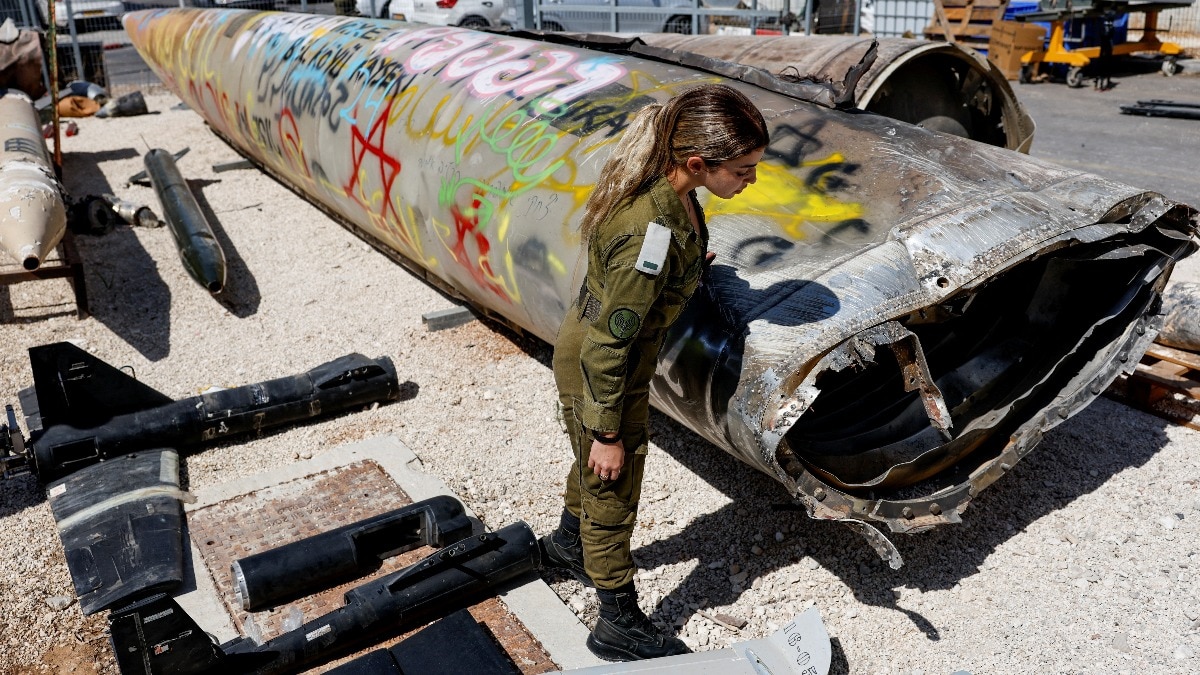2024-10-13 10:41:50
US officials believe Israel has narrowed down targets in its potential response to Iran’s attack this month to military and energy infrastructure, NBC reported on Saturday.
The Middle East remains on high alert for further escalation in a year of war as Israel battles Iran-backed groups Hezbollah in Lebanon and Hamas in Gaza.
Israel has repeatedly said it will respond to Iran’s missile barrage on October 1, which was launched in retaliation for Israel’s military operations in Gaza and Lebanon and the killings of a string of Hamas and Hezbollah leaders.
There is no indication that Israel will target nuclear facilities or carry out assassinations, the NBC report said, citing unnamed US officials and adding that Israel has not made final decisions about how and when to act.
US and Israeli officials said a response could come during the current Yom Kippur holiday, according to the report.
The conflict between Israel and Hezbollah erupted a year ago when Hezbollah began launching rockets at northern Israel at the start of the Gaza war, and has sharply escalated in recent weeks.
Hezbollah said on Sunday it was fighting Israeli forces trying to infiltrate Ramya village in southern Lebanon.
Israel’s military said it continues to operate in southern Lebanon to dismantle “terrorist infrastructure”.
“Over the past day, the IAF (air force) has struck approximately 200 Hezbollah targets deep in Lebanon and southern Lebanon, including terrorist cells, launchers, anti-tank missile posts, and terrorist infrastructure sites,” it said.
Israel also said five launches that crossed from Lebanon were intercepted by the air force.
UN PEACEKEEPERS
Israel has intensified its military operations in recent weeks, bombing southern Lebanon, Beirut’s southern suburbs and the Bekaa Valley, killing many of Hezbollah’s top leaders, and sending ground troops across the border.
Hezbollah for its part has fired rockets deeper into Israel.
Israel’s expanded operation has displaced more than 1.2 million people, according to Lebanon’s government, which says more than 2,100 people have been killed and 10,000 wounded in over a year of fighting. The toll does not distinguish between civilians and combatants, but includes scores of women and children.
US Defence Secretary Lloyd Austin, in a call with Israeli Defence Minister Yoav Gallant on Saturday, expressed “deep concern” about reports that Israeli forces had fired on UN peacekeeping positions in Lebanon in recent days and urged Israel to ensure safety for them and the Lebanese military, the Pentagon said.
Five peacekeepers have been injured in three separate incidents since Thursday, the peacekeeping mission UNIFIL has said.
The fighting in the region which includes all of Tehran’s allied groups — Hezbollah, Yemen’s Houthis and armed groups in Iraq — has raised fears that the United States and Iran will be sucked into a full-scale conflict in the oil-producing Middle East.
The Islamic Resistance in Iraq said in a statement on Sunday it had targeted a military site in the Israeli-occupied Golan Heights with drones as part of its support of the Palestinian people and Lebanon. It said it would continue escalating attacks against Israeli strongholds.
The war in Gaza began after a Hamas-led assault on October 7, 2023, on southern Israeli communities in which 1,200 people were killed and about 250 were taken hostage, according to Israeli tallies.
Israel’s military campaign in Gaza, aimed at eliminating Hamas, has killed more than 42,000 Palestinians, according to Gaza’s health ministry, and has laid waste to the enclave.
Tune In
Israel, Hezbollah, Israel Iran tensions, Israeli military, Middle East, Lebanon, Gaza war, Lloyd Austin, UN peacekeepers, Iran missile attack, Benjamin Netanyahu, Iran military
Source link
5 total views , 1 views today
